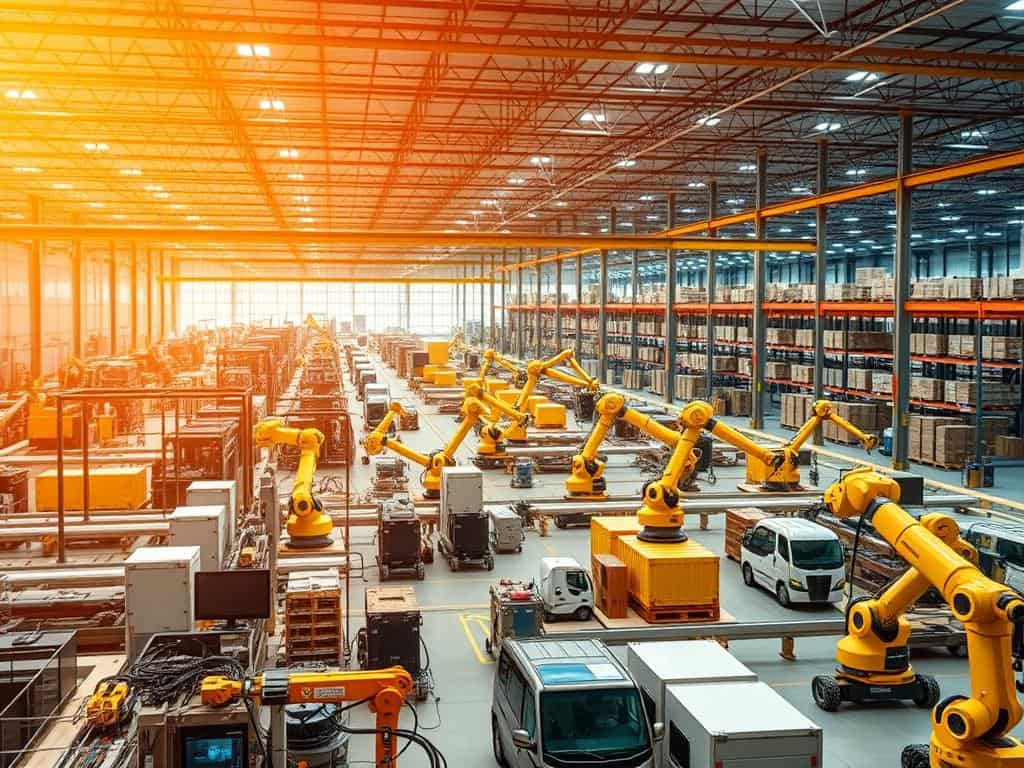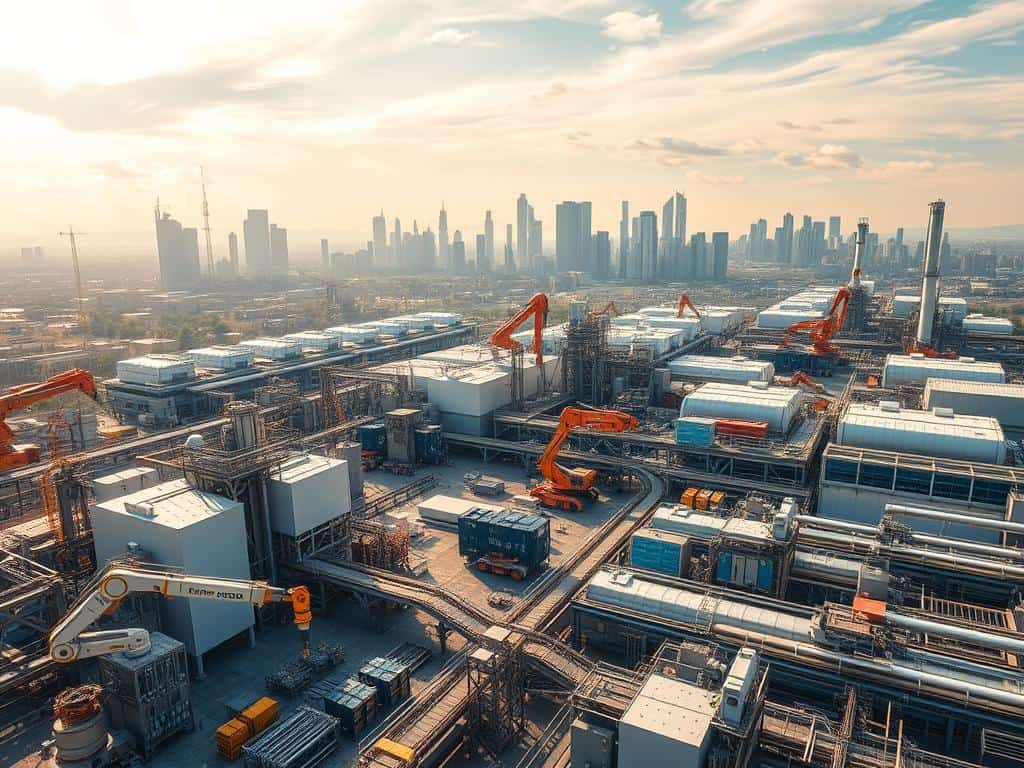Did you know up to 58% of work in operations-intensive sectors can be automated today? This shows how big of a change Industry 4.0 is bringing to making things. It’s not just an update; it’s a whole new way of making things with smart factories.
These smart factories use the latest tech like the Internet of Things (IoT), artificial intelligence (AI), and robotics. They make making things much more efficient.
As companies start using these new tools, they see big changes in how they work. They can make better choices with real-time data and predict what they need. This helps them make more and make fewer mistakes, which means more money.
This move towards automation doesn’t just make things better; it opens up new possibilities. It’s like moving from making lots of the same thing to making just what someone wants. This is a big change from the old ways of making things in big batches.
Key Takeaways
- Industry 4.0 introduces advanced technologies that transform manufacturing efficiency.
- Smart factories utilize IoT and robotics for enhanced decision-making capabilities.
- Predictive maintenance can minimize equipment downtime significantly.
- Customization and flexibility redefine traditional mass production approaches.
- Real-time data analytics enhance operational responsiveness and efficiency.
- The integration of AI provides insights that improve automation across manufacturing.
- Operational efficiencies create a competitive advantage in the evolving manufacturing landscape.
Understanding Industry 4.0 and Smart Factories
Industry 4.0 marks a big change in how things are made. It combines new technologies with old ways of making things. This makes machines and systems talk to each other easily.
This change has led to smart factories. These places use connected devices and advanced tech to make things better and faster.
Definition of Industry 4.0
Industry 4.0 is about bringing together new systems and old ways of making things. It started in 2011 at Hannover MESSE. It’s all about using data to make things better and work smarter.
Smart factories help make this happen. They use new tech to make things better and faster.
Key Technologies Enabling Smart Factories
Many important technologies help make smart factories work. IoT connects machines, so they can share data in real time. This helps keep things running smoothly.
AI and machine learning use big data to make better choices. Big data analytics find patterns to improve product quality. Cloud computing helps store and share data, making things easier for everyone.
Cyber-physical systems mix digital and physical parts. This makes it easier to monitor and control things in smart factories.
Impact of Industry 4.0 on Manufacturing
The move to Industry 4.0 has changed the game for manufacturing. It has brought big improvements in many areas. Smart technologies are making things more efficient and productive.
Enhanced Productivity and Efficiency
Industry 4.0 brings a big chance for better productivity. Studies show 60% of early users have seen a boost in productivity. Some have seen gains of up to 18% in certain fields.
Predictive maintenance, thanks to IoT, cuts down on unexpected downtime. This can save a lot of money for manufacturers. For instance, it can reduce machine downtime by up to 50%, making things more efficient.
Improved Quality Control
Quality control gets a big upgrade with advanced analytics. Manufacturers can watch production in real-time and spot defects fast. This has helped some companies, like General Electric, improve product quality by 25%.
Using IoT for quality checks means less waste and better products. It’s a win-win for everyone.
Customization and Flexibility
Mass customization is a big plus of Industry 4.0. Companies like Adidas are using robots and 3D printing to make custom products fast. This lets them meet market needs without losing efficiency.
This approach not only makes customers happy but also sparks innovation. Companies can get creative and meet new demands.

Conclusion
Looking ahead, Industry 4.0 is a big change for manufacturing. It brings more efficiency, quality, and flexibility. Automated systems, IoT, AI, and big data have changed how factories work.
Many companies have seen less downtime and better use of resources. They also make better products. In fact, using these new technologies can cut down on bad products by 50%.
Smart factories are becoming more common. They offer flexibility and customization. This lets businesses quickly adapt to new trends and unexpected problems.
For example, during the COVID-19 pandemic, factories used remote monitoring to keep working. They also made faster decisions with real-time data. This improved their work in many areas.
Industry 4.0 is more than just new tech. It’s a new way to think about making things. It leads to better use of resources and less waste. This is key for a sustainable future.
This change is not just for manufacturing. It’s a big shift in how we do production and innovation. It’s a turning point for our industries.



